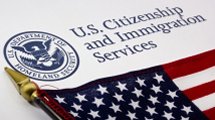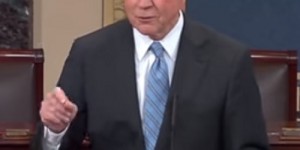The planning commission for Escondido, California, a suburb north of San Diego, ratified on Tuesday its rejection of a proposed 96-bed shelter for unaccompanied illegal immigrant children who were arrested by Border Patrol:
About 200 people packed into City Hall chambers, and a large, overflow crowd cheered and jeered below an outdoor speaker as Escondido commissioners heard impassioned pleas, mostly from people urging them to reconsider.
“Shame on you!” members of the crowd shouted after the panel voted 6-0 to uphold its decision from last month.
The proposal has sparked the latest controversy over immigration in Escondido, a city of 150,000 that has been rocked during the last decade by disagreement over how to treat people who are in the country illegally.
The audience largely supported the proposal, a contrast from last month’s sharply divided crowd when the outcome was less certain. Shelter supporters waved signs that read, “Migrants’ Lives Matter” and “Don’t Be Afraid of the Children.”
The commissioners held no discussion among themselves after nearly three hours of public comment. Anyone can appeal to the City Council, setting up another likely showdown in August.
Unfortunately, the American Civil Liberties Union is considering taking legal action against the city:
David Loy, legal director of the ACLU of San Diego and Imperial Counties, said at a news conference earlier Tuesday that Escondido may be violating state and federal fair-housing laws against discrimination. Southwest Key Programs, the nonprofit group that would operate the shelter, sent representatives to the news conference and said it was being advised by the ACLU.
Southwest Key contracts with the U.S. Department of Health and Human Services to operate child-immigrant shelters across the country, including a temporary facility at Naval Base Ventura County, north of Los Angeles.
Escondido has a long a contentious history with immigration issues. The city, which is 49 percent Latino, has been embroiled in heated immigration debates ever since 2006, when the City Council voted to require landlords to check tenants’ immigration status. A federal judge blocked the ordinance and it never took effect.




























